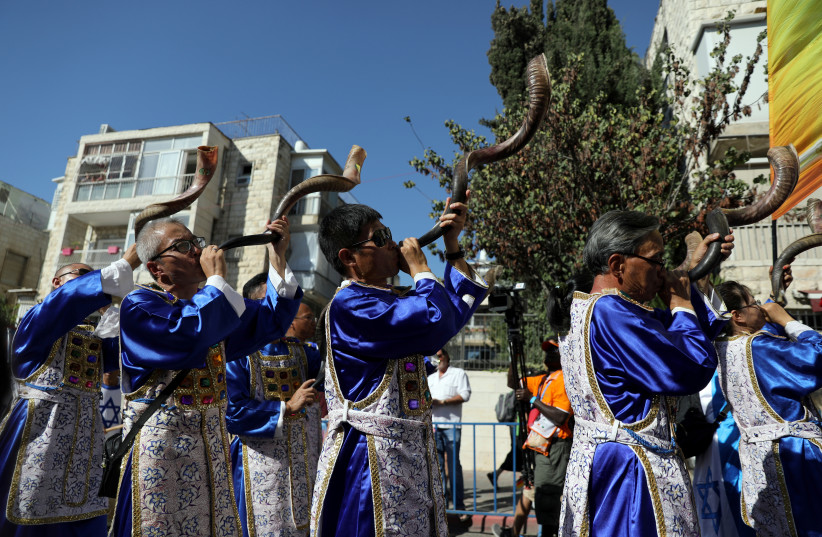Israel will host the 68th annual Jerusalem March this week, continuing a tradition that began in 1955 and draws a crowd of tens of thousands each year, according to the Jerusalem municipality.
The events will begin with a morning walk, to take place along three routes of varying physical difficulty.
The 10km Route A, which will begin in the neighborhood of Gilo, is expected to draw about 1,500 people, and is “suitable for experienced walkers,” according to the city website.
2,000 are expected to take Route B, which will begin at Nahal Refaim Park, and is about 8km total.
But the shortest route will be the largest draw: about 8,000 are expected to walk Route C, beginning at Safra Square and going about 5km total.

Festivities at Sacher Park, a march around town
The three routes will converge in Sacher Park, for a festive event lasting into the afternoon. Entertainment will include circus shows, a magic show, and a performance by the Israeli dance troupe Mayumana.
A concert by Dudu Aharon, the popular singer-songwriter, will be the main performance in Sacher Park.
Then, the parade itself will start at 15:00 on Bezalel Street. It will wind its way through the city center, via Hillel Ben Sira, and King David Streets, and will conclude at the First Station. It is expected to end around 17:30.
From an IDF event to a Christian pilgrimage site
A short history of the Jerusalem March published in 2013 by Israel21C relates that the event began in 1955, as a four-day march to Jerusalem for 200 IDF soldiers and 70 civilians. The march turned into a mass event two years later, with 5,000 soldiers marching, and by 1966, it drew 15,000 participants.
Represented at the Jerusalem March every year is a large contingent of evangelical Christians from around the world, most of whom are associated with the International Christian Embassy of Jerusalem (ICEJ), an evangelical organization founded in 1980.
Each year since then, the ICEJ has invited Christians to come to Israel to celebrate “the Feast of Tabernacles,” using an English phrase for the Jewish holiday of Sukkot. That year, 1,000 Christian pilgrims heeded the call, and 400 participated in the Jerusalem March.
